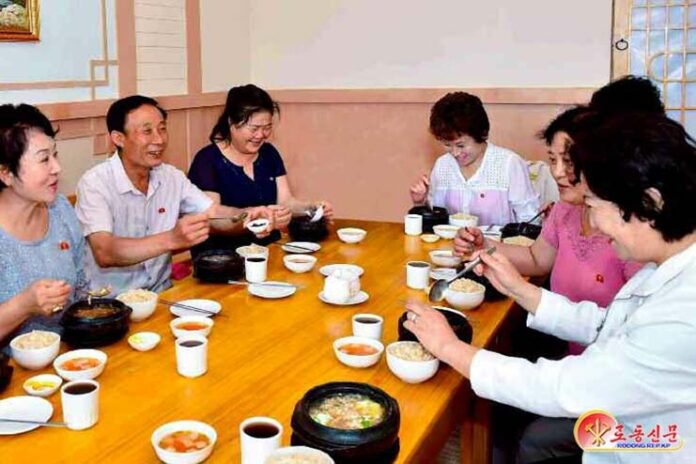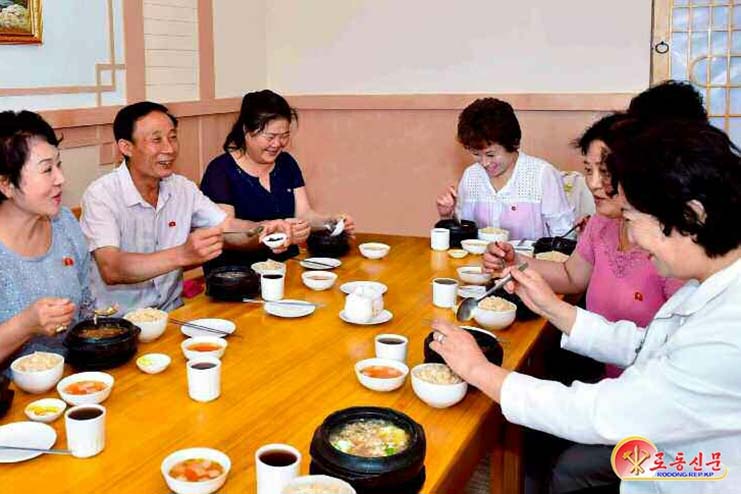 In this picture from state-run media in July 2022, North Koreans are shown enjoying dog meat soup at a restaurant. (Rodong Sinmun-News1)
In this picture from state-run media in July 2022, North Koreans are shown enjoying dog meat soup at a restaurant. (Rodong Sinmun-News1)A state-run dog meat restaurant in North Korea has been shut down after about 10 customers suffered food poisoning during the peak summer dining season, with authorities blaming the incident on inadequate water and electricity supplies rather than just poor sanitation.
The outbreak occurred at a restaurant operated by Sunchon city’s commercial department in South Pyongan province during sambok, the traditional three hottest days of summer when dog meat consumption typically soars. All customers who ate at the establishment on July 12 developed severe symptoms within hours, including stomach pain, fever, diarrhea, and vomiting.
“People who visited the dog meat restaurant run by the commercial department of the people’s committee of Sunchon in the middle of this month collectively complained of stomach pain,” a source in South Pyongan province told Daily NK recently. Several victims required hospitalization.
The restaurant near Sunchon’s market was immediately ordered to close the following day as city officials launched a joint investigation with the hygiene quarantine office to determine the cause.
Infrastructure problems run deep
The investigation revealed systemic problems beyond basic food safety violations. Customers reported that the dog meat gave off a strong odor, while authorities discovered that ingredients requiring refrigeration were left at room temperature and eating utensils weren’t properly cleaned due to frequent water outages.
Restaurant employees told investigators they had to fetch water from a distant well because of inadequate municipal supply. Even more problematic, they were forced to use a refrigerator at another business—a 30-minute walk away—because their own facility lacked sufficient electricity to operate cooling equipment.
The workers complained that poor water and electricity supply was the fundamental cause of the outbreak, noting that other restaurants faced identical infrastructure challenges.
While city commercial department officials acknowledged the infrastructure problems, they characterized the incident as more than just poor sanitation management, calling it “complacency when handling food supplies in summer.”
Following the investigation, the city people’s committee began preparing a formal report for provincial authorities while the hygiene quarantine office analyzed the potential for similar food poisoning outbreaks during the hot season.
Officials announced plans to conduct sanitation inspections at all city restaurants before malbok, the last of the three hottest summer days, to prevent similar incidents.
